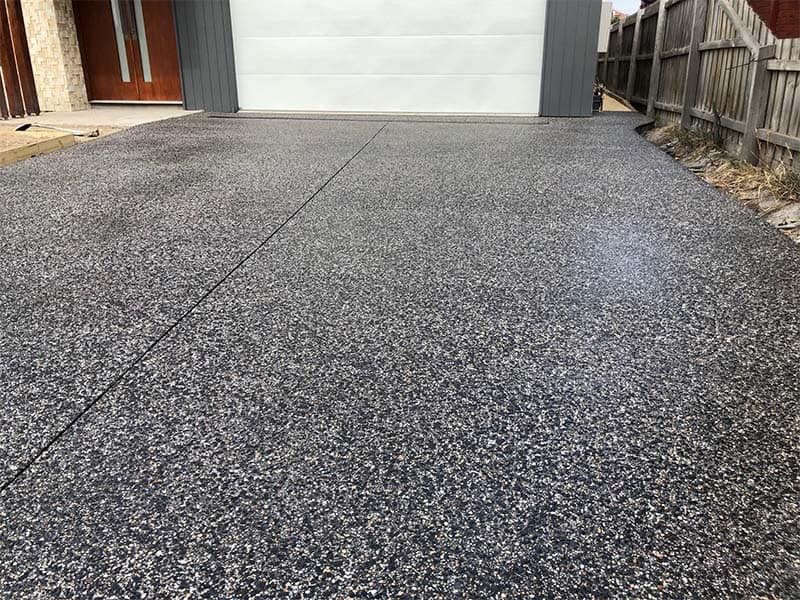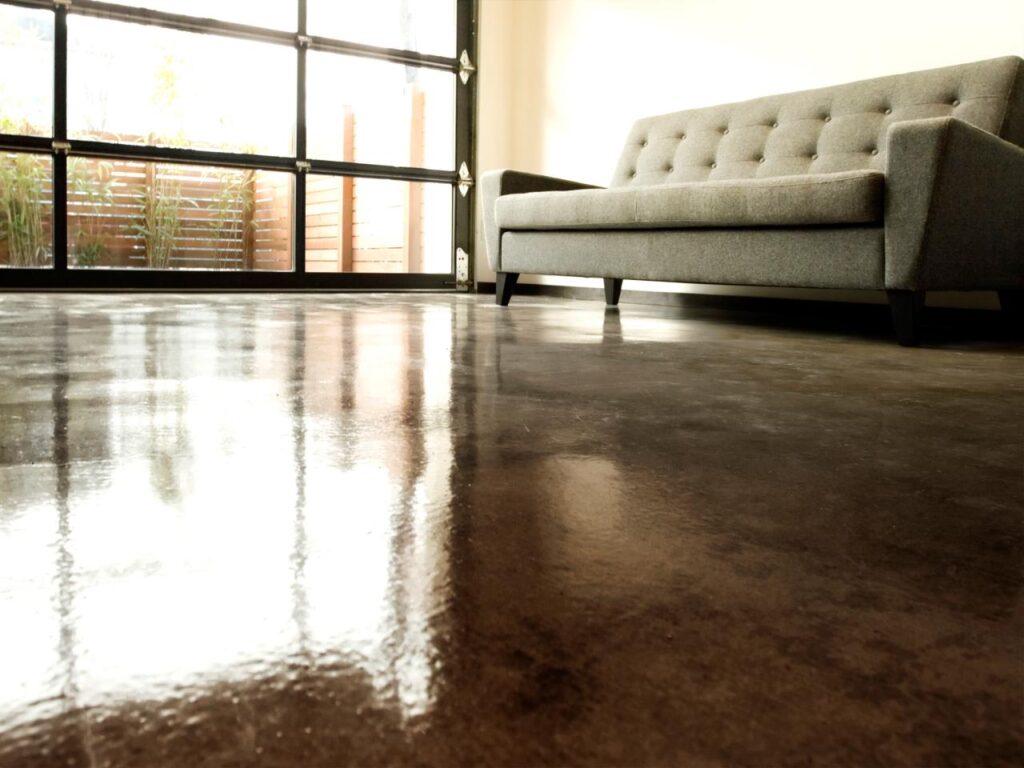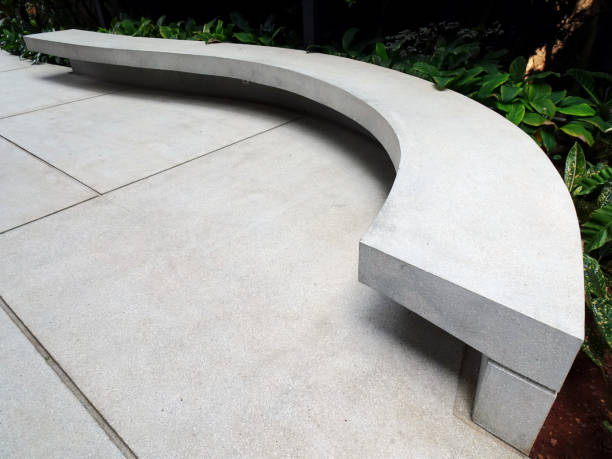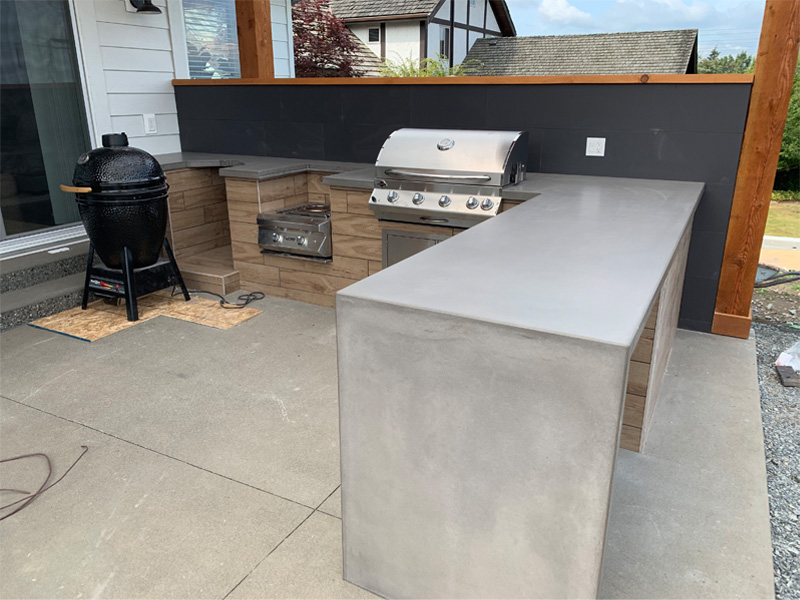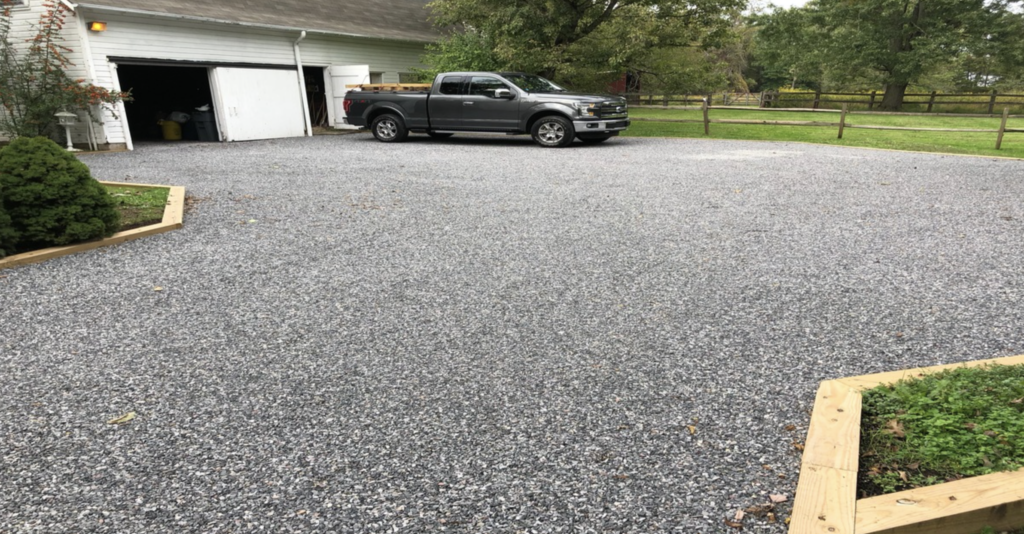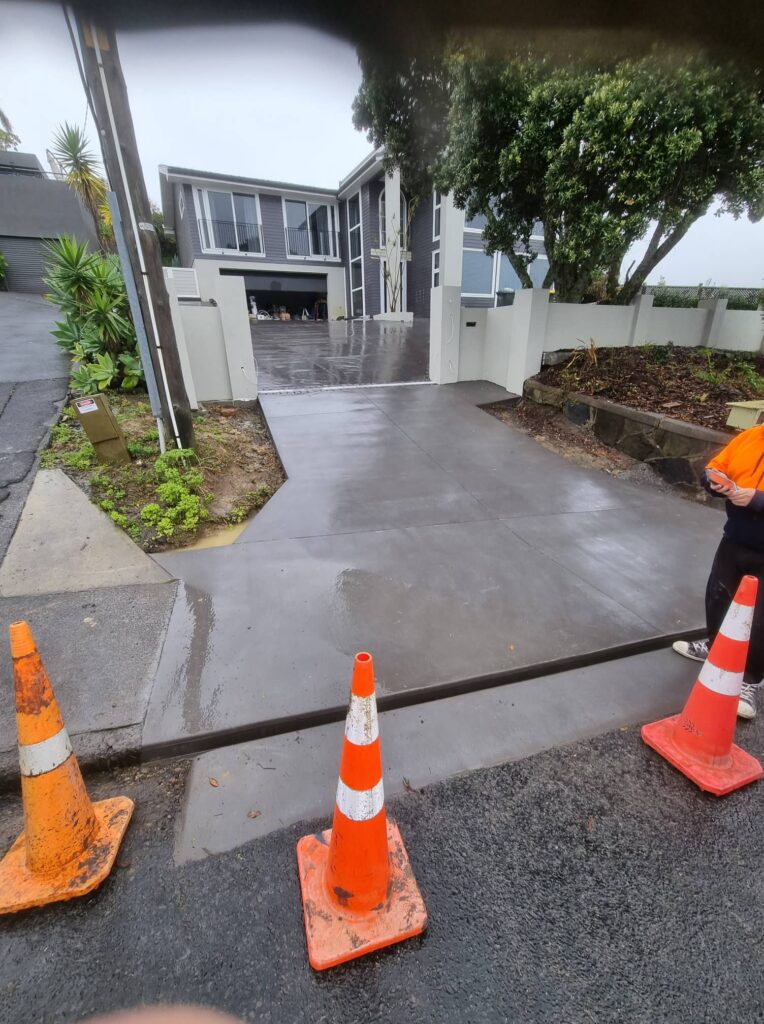- Standards for the thickness of concrete driveways in New Zealand:
- Concrete Thickness By Application
- Getting New Zealand's concrete driveways to last:
- The Cost of Concrete Driveway Thickness in New Zealand:
- DIY Concrete Driveway Thickness in New Zealand:
- How to Hire a Professional in New Zealand for Concrete Driveway Thickness:
- Final Thoughts
Concrete driveways are a popular choice for homeowners in New Zealand because they last a long time and are easy to keep up. But one important thing that is often overlooked is how thick the concrete is. How strong, long-lasting, and high-quality a concrete driveway is depends directly on how thick it is. To make sure that a concrete driveway in New Zealand will last for a long time, you need to know how thick it should be. In this guide, we’ll talk about what the industry standards are for the thickness of a concrete driveway in New Zealand, how important thickness is for durability, how it affects cost, what DIY options you have, and how to find professional help.
Standards for the thickness of concrete driveways in New Zealand:
The New Zealand Concrete Industry has made rules about how thick a concrete driveway needs to be. These rules make sure that the driveway is stable and strong enough to hold the weight of cars and other heavy loads. The standards say that a residential driveway should be at least 100mm thick, while a commercial driveway should be at least 150mm thick. But it’s important to keep in mind that these are just the minimum requirements.
In many cases, a slab that is thicker may be needed. The best thickness depends on things like the type of soil, the slope of the ground, and how the driveway will be used. So, it’s important to talk to a professional or do the right research to make sure that your driveway fits your needs and meets the necessary standards.
Concrete Thickness By Application
How thick should concrete around a pool be?
When building a pool, it’s important to think about how thick the concrete around the pool will be. Not only does it affect how long and how well the pool deck lasts, but it also affects how safe and useful the pool area is as a whole. In this article, we’ll talk about how thick the concrete should be around a pool, what factors affect the thickness, and how important it is to do the job right.
Most of the time, 4 inches is the best thickness for concrete around a pool (100mm). This thickness gives the pool deck enough strength and stability to hold up the weight of the pool, people, and furniture. It also makes it possible for water to drain properly and for reinforcing steel to be added, which makes the concrete stronger and last longer. There are, however, times when a slab that is thicker may be needed. For example, if the pool is in an area with a lot of foot traffic or if it will be used to support heavy things like hot tubs or outdoor kitchens, a thicker slab may be needed.
There are a number of things that can affect how thick the concrete is around a pool. The type and state of the soil is one of the most important things to think about. If the soil is unstable or tends to settle, you may need a thicker slab to keep the concrete from cracking and moving. The climate and weather of the area are also important. In places with extreme temperatures or a lot of rain, a thicker slab can help keep cracks and damage from happening when the ground freezes and thaws. The size and shape of the pool also play a role in figuring out how thick the wall should be. If the pool is bigger or more complicated, the slab may need to be thicker to support it and keep it stable.
Installing a concrete pool deck the right way is very important if you want it to last for a long time. Preparing the subgrade, which is the layer of soil below the concrete, is the first step in the installation process. To make sure the concrete is stable, the subgrade should be packed down and levelled. To prevent cracks and joints, the concrete should be poured all at once. Steel reinforcing should also be put into the concrete to make it stronger and last longer. Proper ageing is also very important. For at least a week after it’s poured, the concrete should be kept moist and kept away from extreme temperatures to cure properly.
In conclusion, if you want a pool deck that will last for a long time, you need to know how thick the concrete should be around the pool. The standard thickness is 4 inches (100mm), but it may need to be thicker depending on the type of soil, the weather, and the size and shape of the pool. For a high-quality and long-lasting pool deck, it’s important to use the right installation methods, such as preparing the subgrade, pouring the concrete in one continuous pour, adding reinforcing steel, and letting it cure properly. With the right thickness and the right way to put it together, a concrete pool deck can be a safe and useful place for many years.
Commercial and Residential Concrete Floor Thickness
When building or remodelling a building, it’s important to think about how thick the concrete floor is. Not only does it affect how long and how well the floor will last, but it also affects how safe and useful the whole building is. In this article, we’ll talk about how thick concrete floors should be, what factors affect the thickness, and how important it is to instal them correctly.
The best thickness for a concrete floor depends on how it will be used and how much weight it needs to hold. A thickness of 4 inches (100 mm) is usually enough for residential use. The most common thickness for business or industrial use is 6 inches (150 mm). This thickness gives the building enough strength and stability to hold the weight of people, equipment, and the building itself. It also makes it possible for water to drain properly and for reinforcing steel to be added, which makes the concrete stronger and last longer. There are, however, times when a slab that is thicker may be needed. For example, if the structure will be used to hold heavy things like forklifts or other heavy machinery, it may need a thicker slab to support it well.
There are many things that can affect how thick concrete floors are. The type and state of the soil is one of the most important things to think about. If the soil is unstable or tends to settle, you may need a thicker slab to keep the concrete from cracking and moving. The climate and weather of the area are also important. In places with extreme temperatures or a lot of rain, a thicker slab can help keep cracks and damage from happening when the ground freezes and thaws. The structure’s intended purpose is also a factor in figuring out the right thickness. A thicker slab may be needed to support and stabilise a building that will carry heavy loads or see a lot of people.
For a concrete floor to last for a long time, it is important that it is installed correctly. Preparing the subgrade, which is the layer of soil below the concrete, is the first step in the installation process. To make sure the concrete is stable, the subgrade should be packed down and levelled. To prevent cracks and joints, the concrete should be poured all at once. Steel reinforcing should also be put into the concrete to make it stronger and last longer. Proper ageing is also very important. For at least a week after it’s poured, the concrete should be kept moist and kept away from extreme temperatures to cure properly.
In conclusion, knowing the right thickness for concrete floors is important if you want a surface that will last. The standard thickness depends on how it will be used and how much weight it needs to hold. Depending on the type of soil, the weather, and how the building is going to be used, a thicker slab may be needed. For a high-quality, long-lasting floor, it’s important to use the right installation methods, such as preparing the subgrade, pouring the concrete in one continuous pour, adding reinforcing steel, and letting it cure properly. With the right thickness and installation, a concrete floor can last for many years as a safe and useful surface.
Garage Floor Concrete Thickness
When building garage, it’s important to think about how thick the concrete floor will be. A garage floor needs to be strong enough to hold the weight of cars and trucks, as well as tools, equipment, and other heavy items. Most of the time, 4 inches is the best thickness for a garage floor (100mm). This thickness is strong and stable enough to hold the weight of the vehicles and heavy loads, and it also lets water drain away properly. Steel reinforcing can also be added to the concrete to make it stronger and last longer. But it’s important to remember that some things, like the type of soil, the slope of the ground, and how the garage will be used, may call for a thicker slab. It’s important to talk to a professional or do the right research to make sure that your garage floor fits your needs and meets the necessary standards.
Concrete Slab Thickness Standards
When building a building in New Zealand, it’s important to think about how thick the concrete slab is. Not only does it affect how long and how well the structure will last, but it also affects how safe and useful the whole thing is. In this article, we’ll talk about how thick concrete slabs should be in New Zealand, the things that affect how thick they should be, and how important it is to instal them correctly.
The New Zealand Concrete Industry has made rules about how thick a concrete slab needs to be. These rules make sure that the slab is stable and strong enough to support the weight of the building and the loads it will carry. The standards say that a residential slab should be at least 100mm thick and a commercial slab should be at least 150mm thick. But it’s important to keep in mind that these are just the minimum requirements. In many cases, a slab that is thicker may be needed.
The optimal thickness is based on things like the type of soil, the slope of the ground, and how the structure will be used. So, it’s important to talk to a professional or do the right research to make sure that your slab fits your needs and meets the necessary standards.
A slab that is thicker is less likely to crack or get holes, which can lead to expensive repairs. A thicker slab also gives more room for reinforcing steel, which makes the slab stronger and less likely to get damaged. This is especially important in New Zealand, where the weather can be harsh and the ground is often not stable. A thicker slab can help stop cracks and other damage caused by freezing and thawing and by the soil sinking.
When figuring out how thick a concrete slab should be in New Zealand, how it will be used is another important factor. For example, if the structure will be used to hold heavy things like forklifts or other heavy machinery, it may need a thicker slab to support it well. Also, a thicker slab may be needed for safety if the structure will be used by a lot of people or will be open to the public. When choosing the right slab thickness, it’s important to think about how the building will be used.
In New Zealand, a durable and long-lasting concrete slab can only be made with the right installation methods. Preparing the subgrade, which is the layer of soil below the concrete, is the first step in the installation process. To make sure the concrete is stable, the subgrade should be packed down and levelled. To prevent cracks and joints, the concrete should be poured all at once. Steel reinforcing should also be put into the concrete to make it stronger and last longer. Proper ageing is also very important. For at least a week after it’s poured, the concrete should be kept moist and kept away from extreme temperatures to cure properly.
In New Zealand, it is important to know the best thickness for a concrete slab if you want a structure that will last a long time. New Zealand’s industry standards for concrete slab thickness should be taken into account, but it’s also important to think about things like the type of soil, the slope of the ground, and how the building will be used. A thicker slab might cost more at first, but it can save money in the long run by reducing the need for repairs and making the building last longer. Whether you’re building a house or a business, it’s important to learn about the right tools and techniques.
Getting New Zealand’s concrete driveways to last:
In New Zealand, getting a durable concrete driveway depends a lot on how thick the concrete is. A slab that is thicker is less likely to crack or get holes, which can lead to expensive repairs. A thicker slab also gives more room for reinforcing steel, which makes the slab stronger and less likely to get damaged. But thickness is not the only thing to think about when it comes to how long something will last. The quality of the materials and the right way to put them together are also very important. For example, using a high-quality concrete mix and the right way to let it cure can make the driveway much stronger and last longer. Also, if the subgrade, which is the layer of soil under the concrete, is packed down well, it can help keep the concrete from sinking and cracking.
The Cost of Concrete Driveway Thickness in New Zealand:
Cost is often a big factor when deciding on the thickness of a concrete driveway. A thicker slab will cost more than a thinner one because more materials and work are needed to make it. But it’s important to weigh the cost of a thicker slab against how much it will save in the long run. A slab that is thicker is less likely to crack or get holes, which can lead to expensive repairs. A thicker slab also gives more room for reinforcing steel, which makes the slab stronger and less likely to get damaged. So, even though a thicker slab may cost more at first, it can save money in the long run by reducing the number of repairs needed and making the driveway last longer.
DIY Concrete Driveway Thickness in New Zealand:
A DIY option may be appealing to people who want to save money on the cost of a concrete driveway. Measuring and pouring the thickness of your own concrete driveway can be a difficult but rewarding project. But it’s important to remember that the right way to measure and instal the surface is very important if you want it to last. Before starting a project on their own, homeowners should learn about industry standards and the right way to measure and pour concrete. Also, the project needs the right tools, such as a concrete mixer, tools for measuring, and a compactor. A project you do yourself can save you money, but before you start one, you should think about how experienced and skilled you are.
How to Hire a Professional in New Zealand for Concrete Driveway Thickness:
If you aren’t sure you can measure and pour a concrete driveway thickness on your own, the best thing to do is hire a professional service. A reputable and skilled contractor will have the experience and tools needed to make sure the driveway meets industry standards and fits the homeowner’s needs. When looking for a contractor, it’s important to get bids from more than one company and check their references. It’s also important to find out if the contractor knows the rules and codes in your area. Hiring a professional can make sure that your driveway is of good quality and will last for a long time.
Final Thoughts
In conclusion, knowing the right thickness for a concrete driveway in New Zealand is important if you want a surface that will last for a long time. New Zealand has standards for how thick a concrete driveway should be, but it’s also important to think about things like the type of soil, the slope of the ground, and how the driveway will be used. Even though a thicker slab may cost more at first, it can save money in the long run by reducing the need for repairs and making the driveway last longer. Whether you do it yourself or hire a professional, it’s important to know the right techniques and tools for a successful and high-quality installation. With the right thickness and installation, a concrete driveway can last for many years and give your vehicles and heavy loads a strong, stable surface.
From concrete driveways, including South Auckland concrete driveways, concrete repair, stamped concrete, concrete laying and more. Give us a call, we are ready to help bring your project to life! Visit our cost of concrete of driveway NZ guide if you need help figuring out how much you could expect to pay for your concrete project.
About the Author:
Mike Veail is a recognized digital marketing expert with over 6 years of experience in helping tradespeople and small businesses thrive online. A former quantity surveyor, Mike combines deep industry knowledge with hands-on expertise in SEO and Google Ads. His marketing strategies are tailored to the specific needs of the trades sector, helping businesses increase visibility and generate more leads through proven, ethical methods.
Mike has successfully partnered with numerous companies, establishing a track record of delivering measurable results. His work has been featured across various platforms that showcase his expertise in lead generation and online marketing for the trades sector.
Learn more about Mike's experience and services at https://theleadguy.online or follow him on social media:
